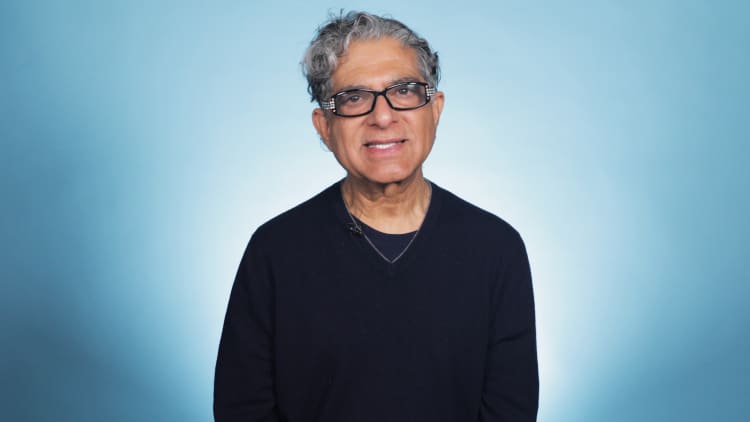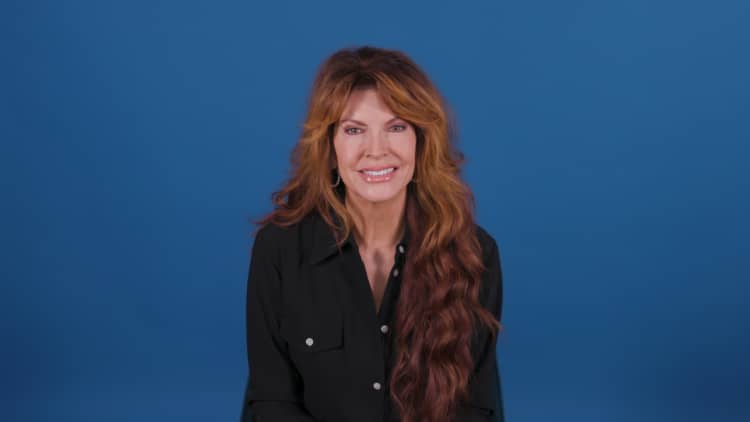The word "hypnotist" may bring to mind a Hollywood image of a person who swings a pocket watch in front of a patient's eyes to make them obey commands.
But hypnosis — putting a person into a trance-like state in which they have heightened focus and concentration, according to the Mayo Clinic — has been used for decades for legitimate purposes. It is used clinically to help with anxiety before medical procedures, for example.
Now, hypnosis is also becoming a trend among business leaders who are seeking help with performance issues such as focus, speech anxiety, confidence and even goal-setting.
A boost in professional performance
Hypnosis practitioners use verbal repetition or mental images to help a person focus, then offer ideas and possibilities for developing new thoughts, feelings or perspectives that are in line with the goals of the treatment.
"Hypnosis is a gentle and effective means for helping people shift their attention back to what can help them accomplish what they want to accomplish and experience what they want to experience," Michael D. Yapko, a clinical psychologist and author of "Trancework: An Introduction to the Practice of Clinical Hypnosis and Essentials of Hypnosis," tells CNBC Make It. This helps them focus instead of getting lost "in irrelevancy."
Guy H. Montgomery, an associate professor at Icahn School of Medicine at Mount Sinai, who uses hypnosis on breast cancer patients to help with pain and anxiety and has treated business leaders for speech anxiety, says during a typical session, a client sits in a comfortable chair and follows the suggestions of the provider.
"Typically — something like close your eyes, and let yourself relax. ... Imagery and suggestions follow which are tailored to the patient/client," Mongomery says.
Montgomery says the use of hypnosis has been "trending up," and Manhattan-based hypnotists John Mongiovi and Sylvain Coulon both say they've seen an uptick in business professionals in recent years who need help with work-related issues.
"Many executives experience performance anxiety when giving presentations and important meetings, [and] sometimes executives seek help being more patient and positive with their colleagues and employees," Mongiovi, who owns a private practice in New York City, tells CNBC Make It.
Coulon, who also has a private practice in Manhattan, says since he opened in 2016, he has seen a slew of professionals seeking help with work-related issues such as procrastination, focus and preparation for big speaking events.
Hypnosis sessions for both Mongiovi and Coulon run about $200 an hour. Most people need around two to four sessions to see results, according to Mongiovi.
Other practitioners, however, charge executives the big bucks for hypnosis.
Kimberly Friedmutter, a Las Vegas-based celebrity hypnotherapist and author of "Subconscious Power," tells CNBC Make It that since opening her practice in Nevada in 2003, she has attracted many high-performing Fortune 500 CEOs and entrepreneurs. Friedmutter charges her clients around $1,000 to $2,000 an hour, or a minimum of $25,000-$50,000 for her full program, which includes 24 to 50 hours of private sessions.
The most common problems she says she sees among her high-performing clientele are anxiety, depression, loneliness and fear. But the "desire to excel" is an even bigger one.
"[Hypnosis] is actually quite helpful when you want to enhance your own performance," Friedmutter says.
One client, film executive David Zelon, turns to Friedmutter and hypnosis when he has a big business goal in mind — whether it's getting a movie script approved or finding the right cast.
"I call it subconscious goal-setting," Zelon, an executive vice president at Mandalay Pictures, tells CNBC Make It.
Zelon says during hypnosis he can visualize his goals playing out before they happen, which has helped him achieve them faster. He also finds he is more focused at work after sessions.
What to know before trying this practice
Not everyone, however, believes in the power of hypnosis for professional success. Irving Kirsch, associate director of the Program in Placebo Studies and lecturer in medicine at Harvard Medical School says there are no data to support the idea that hypnotherapy directly helps with job performance. The data only show that hypnosis can help with things like reducing pain and soothing anxiety.
Kirsch also warns people to look at the credentials of their hypnotherapists if they choose to seek out treatment, as there are a lot of unreputable certifications out there, and the profession is not regulated.
"With many of them, all you need to do is send money to become a 'certified hypnotherapist,'" Kirsch says.
In Kirsch's opinion, there are only two legitimate hypnosis societies in the U.S. — the American Society of Clinical Hypnosis, or ASCH, and the Society for Clinical and Experimental Hypnosis.
"Both of them require that a person be a qualified health professional," such as a medical doctor, licensed clinical psychologist or clinical social worker, "or academic researcher in order to become an affiliate," he says.
Friedmutter, who is not certified by either of those organizations and is not a qualified health professional, says that hypnotherapy as a profession does not have a stand-alone protocol and requires no licensing in all 50 states. Friedmutter also says there are many credible organizations beyond the two societies mentioned by Kirsch.
Mongiovi and Coulon are also not certified by the organizations Kirsch mentions and do not have any medical degrees or licenses.
Yapko, however, is a clinical psychologist and a fellow at ASCH. He advises people who are interested in trying hypnosis for clinical or performance-related issues to search for a qualified practitioner using the ASCH website.
How to visualize and find focus at home
Even if you can't afford a pricey hypnotist, it doesn't mean you can't benefit from hypnosis. Experts say people can learn self-hypnosis techniques to build better focus.
"Generally, the best way to learn self-hypnosis is through a guided experience," Yapko says, which can be learned through professional recordings that are readily available online.
Mongiovi, on the other hand, says the best way to begin self-hypnosis is to sit comfortably and allow the eyes to gaze downward slightly ("as they tend to do when we daydream") while relaxing your jaw and all the muscles of your body.
"Then pay close attention to the sensations of breathing. Let the body breathe naturally without your control, and try to notice the sensations of inhaling and exhaling in the chest," Mongiovi says.
After your breathing feels relaxed, he says to imagine what it means to you to feel very focused and remember the times when you have felt that way.
"Try to feel a positive emotional sensation, and think to yourself, 'I am very focused.' Do this 20 times, keeping count on your fingers. Then take a few refreshing breaths and open your eyes," he says, which should help you to feel more focused.
Friedmutter says she created this short "focus hack" for her high-profile clients at the office: Select a spot in front of you to focus on and continue to stare at that spot. Allow your eyesight to diffuse to either side of the spot, engaging your peripheral vision and hold this peripheral vision for 10 seconds.
"It's difficult to experience a negative emotion while in peripheral vision. Overwhelm, fear, confusion, anxiety, worry or any negative feeling that takes you off your game will subside when you engage the 'bigger picture' of peripheral vision," she says.
Like this story? Like CNBC Make It on Facebook.
Don't miss: Neuroscientist: Skip breakfast sometimes and 2 other simple tips to boost your brain performance
Working long hours for a decade can increase stroke risk by 45%—here's what can help
A performance-enhancing pill based on the gut bacteria of elite athletes is in the works
Clarification: This article has been revised to reflect that Mongiovi, Coulon and Friedmutter do not have any medical degrees or licenses.




